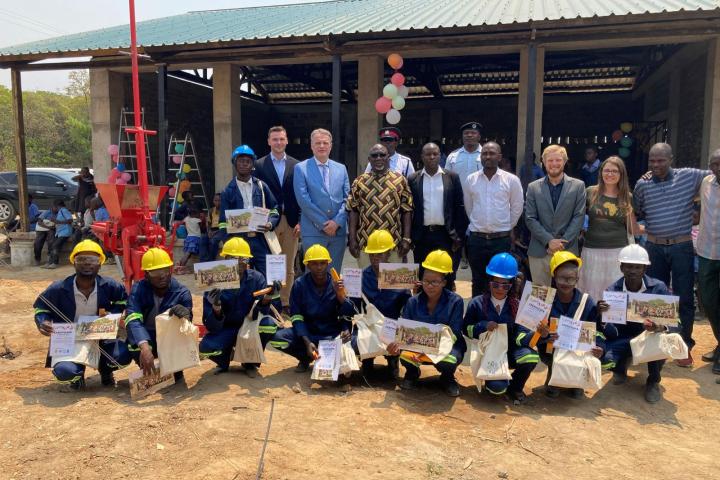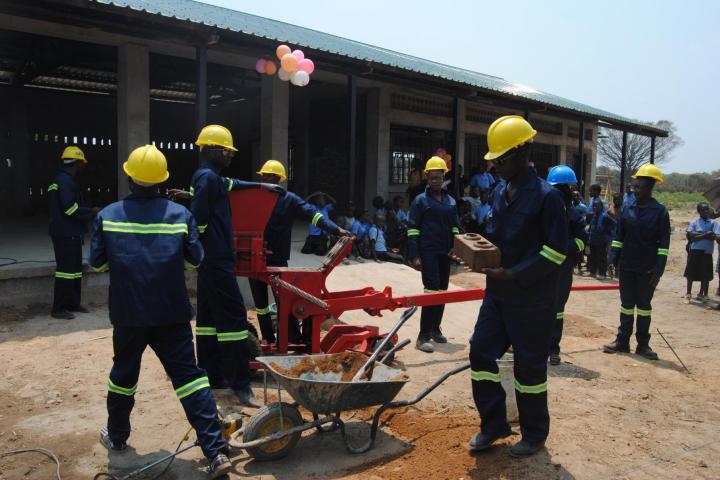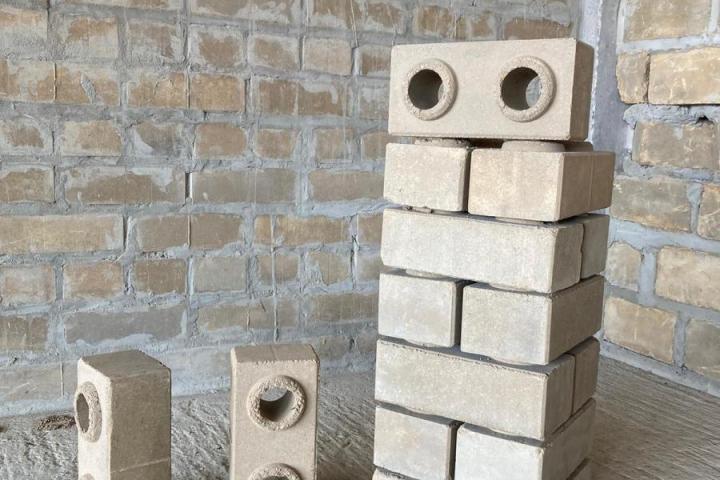The project was implemented in cooperation with the International Center for World Development of CTU, the Czech organization Friends of New Renato and the Zambian non-profit New Renato Community Society. The group of volunteers (Kashitu team) that implemented the construction was formed at the first summer school implemented by the Centre for International Development Projects of CTU. The construction was made possible thanks to the financial support received through the UNDP Challenge Fund and the contribution of many public donors.
The workshop is the first building of the future high school. The nearest secondary school is 40 kilometres away, and most local small farmers cannot afford to pay their children's fares or accommodation at more distant schools. Zambia's District Commissioner for the Office of the President, Francis Hasalamo, also spoke several times at the ceremony. He spoke highly of the project: "Thank you to all the volunteers, especially the Czech ones. Please do not continue to support the local community but persevere into the next phases of construction. The secondary school brings hope for the local population to achieve higher education and thus self-sufficiency."
The bricks are produced on special brick-making machines from the company Cut-Tech from Strančice near Prague. In Zambia, as a rule, burnt bricks are used in the production of which a large amount of wood is consumed, which is scarce in the region and leads to deforestation. The new firing technology does not require wood, so its introduction contributes to the preservation of local forests.
A small amount of cement is added to the unfired bricks and the bricks harden themselves in less than a month. There is no need to burn them, which saves many trees. As a result, they are stronger than burnt bricks and resistant to termites that otherwise infest burnt brick dwellings. The brick moulder also moulds two bricks at a time in half the time of a traditional tool. Thus, the building process based on interlocking unfired cement bricks makes it possible to build faster, cheaper and of higher quality.
Nejbližší přednáška Petra Čandy o projektu bude ve středu 11. 10. 2023 od 14:00 na Fakultě stavební ČVUT v rámci akce ICWD Rozvojová středa. Více na
Petr Čanda's next lecture about the project will be on Wednesday 11 October 2023 at 14:00 at the Faculty of Civil Engineering of the CTU as part of the ICWD Development Wednesday event. More at http://icwd.cvut.cz/
Actors from the ranks of Czech builders and volunteers will share the joys and sorrows of the three-month-long construction of the workshop with the public on Saturday, 28 October in Prague. Details can be found on the Friends of New Renato website (https://pratele.newrenato.org/).
Photos of the brickworks, the building and the surroundings can be downloaded here:
https://drive.google.com/drive/folders/1tnTwqTP4F_xebs60rD1LbaCOAYeLIz5F?usp=drive_link



